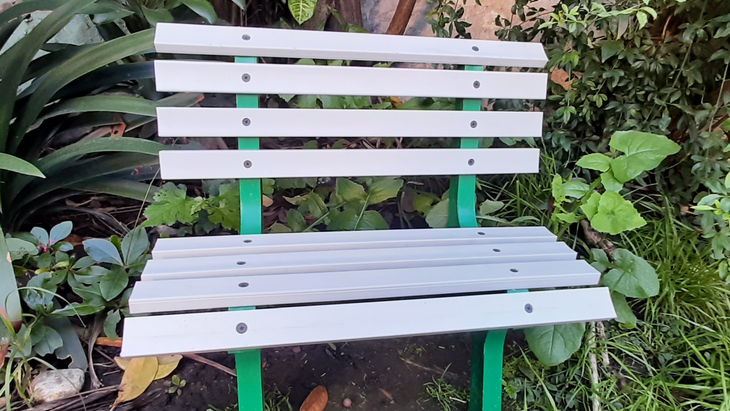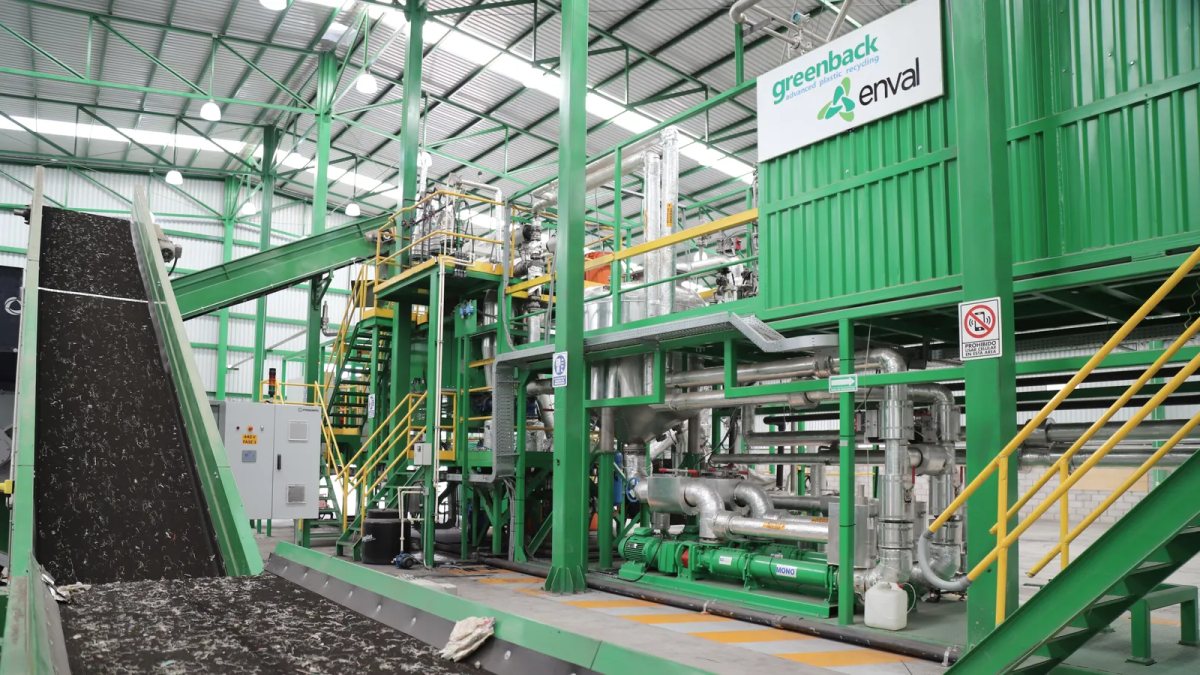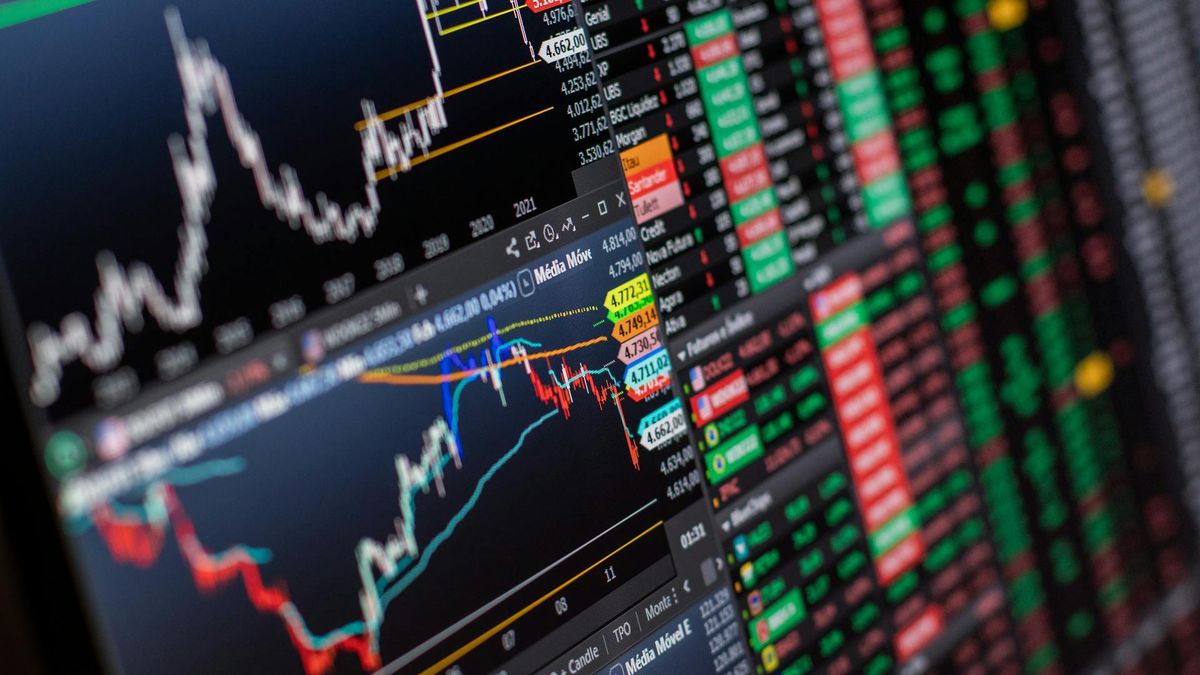Over the past 20 years, plastic recycling has increased fivefold, from 57,100 tonnes per year in 2003 to more than 294,000 tonnes in 2023. During this time, more than 4 million tons were recycled. The recycling sector circular economy seeks to promote a law to encourage the practice, despite the resistance of the Government of Javier Milei.
The non-profit civil association Ecoplas released a report on the sustainable development of plastics in Argentina during the last two decades, which shows an increase in the awareness of society and companies Regarding the careful of the environment.
On the occasion of the 20th anniversary of the Index of Recycling that the organization carries out together with the Argentine Chamber of the Plastic Recycling Industry (CAIRPLAS)the latest figures from the survey were released, which showed that since 2003 More than 4,000,000 tons were recycled of plastic in Argentina, a weight equivalent to 99,500 commercial aircraft.
ecoplas recycling.png
Plastic recycling grew fivefold: from 57,100 tons in 2003 to 294,000 in 2023
If in 2003 about 57,100 tons of plastic were recycled annually, by the end of 2023 the figure will increased fivefold to almost 300,000 tons. From Ecoplas They indicated that thanks to this More than 5,700,000 tons of CO2 emissions were avoided in the atmosphere.
“He Index of Recycling confirms that the trend towards caring for the environment is growing, with a view also to productive development towards a circular economy. The national recycling industry already has more than 140 companies that are committed to the circular economy in 19 provinces“, he stressed Veronica Ramos, Executive Director of Ecoplas.
Currently, in Argentina there are more than 140 companies in 19 provinces that are part of the mechanical recycling industry which allows plastic to be transformed into new products. The circular economy, a model that surpasses that of the linear economy (produce, consume, dispose) allows the resources are used for longer and which, in due time, can be transformed into new final products, reducing pollution.
Little by little, traditional practices (linear economy) are giving way to a paradigm shift in the circular economy. The 3R model (reduce, reuse and recycle) is evolving into the 7Rs (redesign, reduce, reuse, repair, renew, recycle and energy recovery), with the aim of converting waste into resources to start new cycles. sustainable productive and efficient.
“It is important to raise awareness about the benefits and the need to make this transition to the circularity. This construction has its axis in the promotion of ecodesign, public policiescollaborative ecosystems, innovation, infrastructure and logistics development, and environmental education so that plastics are responsibly consumed, reused, and recycled. This is collaborative work that must be coordinated with the actions of the public sector, companies, associations, and citizens,” Ramos said.
In addition to mechanical practice, the YPF oil company It has in its structure a pilot plant that implements advanced recycling. This is aA set of innovative technologies of recovery and revaluation which complement mechanical recycling and transform plastic waste to produce new raw materials. In this way, it is possible to convert plastic waste into plastic waste into its original components, which allows for increased recycling.
Ecoplas coordinates the Circular Economy Network where leading companies, together with Delterra, They work on the development of projects on categories of plastic waste and reverse logistics.
Public policies and regulatory frameworks
The implementation of public policies and regulatory changes is of great relevance in the transition towards circularity. The most notable chapters include the work on standardizations with the aim of Argentine Institute of Standardization and Certification (IRAM) for manufacturing, recycling and eco-design.
In Argentina, the association promotes a REP (Extended Producer Responsibility) lawAccording to Ecoplas, the relevance is supported by global experiences such as the Spanish case, where after the approval of the law The amount of recycled packaging grew 37 timesIn the region, neighbouring countries such as Brazil, Chile and Uruguay already have similar laws for the management of packaging waste of all types of materials.
Ecoplas’ proposal clashes with the Government’s position, and in particular with that of the President, regarding the impact of global warming. For Milei, it is ““another of the lies of socialism”“Ten or 15 years ago, there was talk that the planet was going to freeze. Now they are arguing that it is warming up. Those who know how these simulations are done will see that the functions are oversaturated in certain parameters on purpose to generate fear,” he said during the 2021 legislative campaign.
ecoplas ecodesign.png

Ecodesign and education
However, the recycling initiative has significant support from Argentine society. According to a survey conducted by Give your opinion for Ecoplas, he 43% of Argentines are willing to pay more for a product made from recycled plastic.
In Argentina there are two eco-labels promoted by Ecoplas which facilitate the circularity of plastics: Manito certifies mono-material plastic packaging and products and has currently certified more than 80 companies in the country; and the Recycled Plastic Content Certification, formulated in collaboration with the National Institute of Industrial Technology (INTI), guarantees traceability and the proportion of a minimum of 15% recycled plastic content in the final products.
In addition, the association consolidated its initiatives education and awareness citizen through class “Responsible consumption and circular economy of plastics” in it Green Schools Program of the Ministry of Education of City Governmentwhere it is already They trained 6,500 students and 348 teachers; also training for urban recycling cooperatives and the publication of the Circular Economy Guide for Plastics, with useful and practical information for more conscious and responsible consumption.
“With the Plastic Recycling Index and all the actions we have been promoting, we want to reaffirm our commitment to the circular economy of plastics so that they continue to provide benefits to both the environment and society. The vision of a future where plastics are not only part of our daily lives, but also contribute to protecting the environment and improving people’s quality of life is possible,” Ramos concluded.
Source: Ambito




